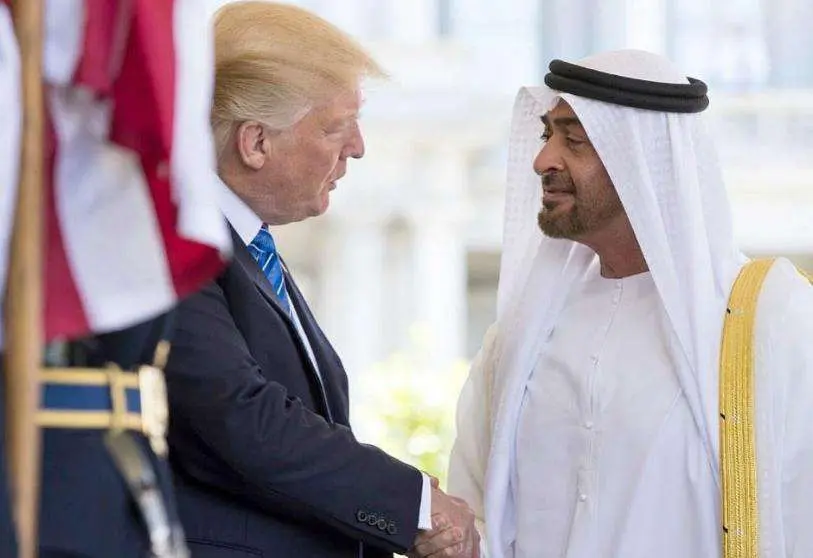Trump and Abu Dhabi's Crown Prince discuss escalating violence in Libya

The Crown Prince of Abu Dhabi, Sheikh Mohamed bin Zayed al-Nahyan and US President Donald Trump discussed regional security issues on Tuesday, including the "importance of reducing the escalation of tensions in Libya" through "the elimination of foreign powers" that are present in the conflict raging in the North African nation.
The Emirati leader held a telephone conversation with the U.S. president just one day after Trump and his French counterpart discussed the instability in the region. "The two leaders discussed important bilateral and regional issues," said White House spokesman Judd Deere, adding that "Macron and Trump discussed ways to reduce tension in Libya". The war between the internationally recognized Tripoli-based government and the Libyan National Army (LNA), led by Jalifa Haftar, "has been exacerbated by the presence of foreign forces," the statement said.
Meanwhile, the Egyptian Parliament has approved the deployment of troops in Libya against "the actions of armed militias and foreign terrorist elements". In this scenario, the US president has held several separate talks over the last few days with both the Turkish president and his Egyptian counterpart. Egyptian President Al Sisi reviewed with Trump his country's strategic position on the Libyan issue, saying that his intention is to "restore the balance of the state and preserve its national institutions," according to a statement by the official spokesman of the Egyptian presidency.
Likewise, the Egyptian leader intends with this type of actions to avoid the deterioration of the security situation and has criticized foreign interference, from countries such as Turkey, considering that their presence has serious repercussions for regional stability. Poverty and food insecurity, underdevelopment and corruption have been installed on Egypt's doorstep. To these developments must be added the multidimensional crises caused by terrorism and transnational organized crime. The advance from the west of forces loyal to Fayez Sarraj has set off alarm bells in Cairo, which on Tuesday approved the sending of troops on "combat missions outside the borders" of the country.
The LNA is supported by Jordan, Saudi Arabia, Egypt, the United Arab Emirates, Sudan and Russia, while the Tripoli government, backed by the Muslim Brotherhood and internationally recognised by the United Nations, receives military aid from Turkey and Qatar. Bilateral meetings to discuss the Libyan conflict have been taking place in recent weeks. For example, on 18 July, the President of Algeria, Abdelmadjid Tebboune, met the head of UNSMIL, Stephanie Williams, in Algiers. There, UNSMIL thanked Algeria for its work to end the violence in the country. Noting the alarming mobilization of forces around Sirte, they called for an immediate ceasefire under the umbrella of the 5+5 joint military talks.
The US President has continued his round of talks by speaking with the Crown Prince of Abu Dhabi, Sheikh Mohamed bin Zayed al-Nahyan, who supports the LNA. Meanwhile, Turkey has increased its support for the government in Tripoli, where there are already more than 16,000 fighters from Syria and other nationalities, according to the Syrian Observatory for Human Rights (SOHR).








